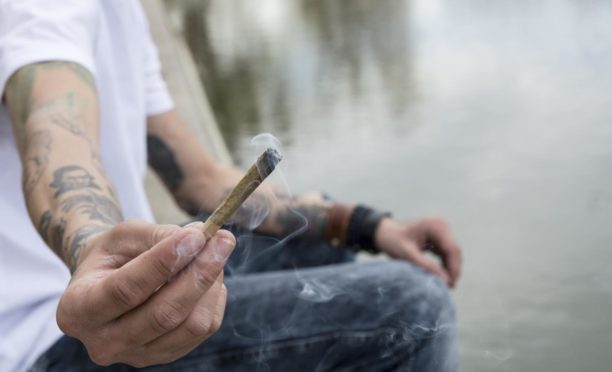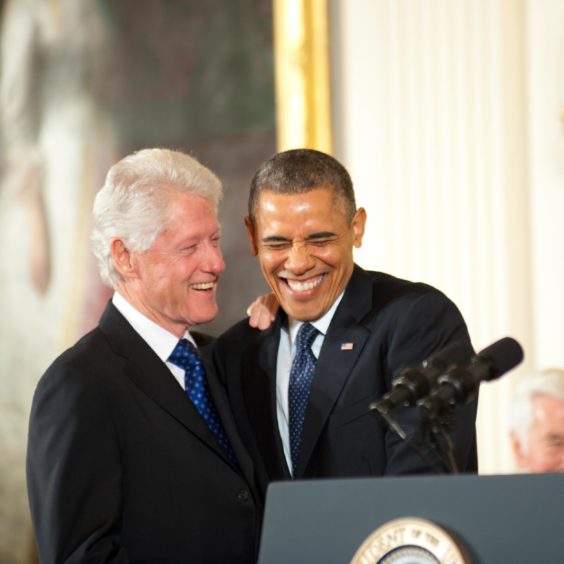Why did you not take drugs? You were young, experimenting with life. The drugs on offer were not addictive. Everyone was doing it. So why didn’t you?
It would make for a much better question to ask politicians. Instead, Piers Morgan stuck to the predictable query when talking to Keir Starmer. Did he take drugs?
The UK Labour leader dodged the answer, but even Morgan didn’t seem to care that much. Who does?
If Starmer was knee-deep in MDMA pills at his college digs, it doesn’t matter. He’s gone on to become a hugely successful lawyer and head up a political party.
Perhaps if he’d taken more drugs he might be a more interesting and able leader. We shall never know, despite harbouring suspicions that a few spliffs and the odd ecstasy pill might make him more fun.
Lots of powerful people smoked pot
Politicians have been passing the blunt on this for decades.
Bill Clinton didn’t inhale – so he said – and located his experiment with hash in England, while studying at Oxford. Not just a respiratory distance, but a geographical one, too. The message was: only dopehead Brits do things like that.
Were I an editor of a paper, I’m not sure I’d hire someone who hadn’t tried drugs – it would indicate an incurious mind
Barack Obama wasn’t so coy, confessing to smoking “pot” as a student. To which every other student since the 1960s nodded at the hazy recognition.
Tony Blair was typically sanctimonious on the topic, claiming to have never even tried. Quite how he managed that at Fettes in the 1970s remains astonishing, as it was easier to get a joint than a beating at the school.
Boris Johnson admitted he took cocaine at Oxford – clearly a richer circle of pals than Clinton had – and said it had “no pharmacological, psychotropic or any other effect” whatsoever. He also smoked weed and “it was jolly nice”.
As it is. Not for everyone, perhaps, but lots of people enjoy a joint and go on to become powerful, successful people. Were I an editor of a paper, I’m not sure I’d hire someone who hadn’t tried drugs – it would indicate an incurious mind.
There are worse crimes
The catch to the question is legal. Did you knowingly break the law of the land? If so, can you reasonably ask others to abide by the law?
To which, of course, the answer should be: “We all break the law at times, but most of us can tell the difference between having an illegal spliff and something more egregious.”
Clinton’s worst crime was demeaning the office of president. Obama’s was standing back while Syria burned. Who cares about joints?
The point is that the law is an ass on drugs. No students in lockdown who decorated their halls with marijuana symbols have been arrested or even investigated, because it would be a waste of everyone’s time and money.
The drug is commonplace, normal, unremarkable. It should not be illegal in the first place.
Some people will misuse it, and some are more vulnerable. It is not to dismiss the tragedies connected to marijuana by saying that, on the whole, it does little harm.
Trust our instincts
Hash isn’t a terrible threat to society. We know that because society functions today, and hash is everywhere.
If you want to sink into a mire of joints, you can already. Most of us don’t want to, so we don’t. It doesn’t require a law to regulate this, only human instincts.
If you didn’t take ecstasy, then your child almost certainly has. And yet we get wealthier, smarter and more peaceful as a society
Anti-drug campaigners are like atheists expecting the Vatican to fall – they are probably right, but humans love the magic.
When MDMA took off in the late 1980s, moral outrage followed. There were some sad cases of people reacting badly and the tabloid press and Tory politicians condemned the drug.
The initial threat was that it would damage the brain. Then, bizarrely, that people who had taken it would drink too much water to counteract thirst.
Four decades later and ecstasy is a basic ingredient of a night out. If you didn’t take it, then your child almost certainly has. And yet we get wealthier, smarter and more peaceful as a society.
Cocaine is dangerous because of its value, not its effects
Cocaine is also readily available. Find me a lawyer, academic or businessperson who hasn’t taken it, or at least been offered, and I’ll show you a liar.
Clearly the criminal structure behind cocaine’s production makes it a horrible drug. It is a white line that leads into the darkness of human behaviour, not for its chemical properties but its capital value.
The bloody trail of cocaine production and distribution might be cleaned up if the drug were legal. It’s a risk I’d be prepared to take for the good it would to to the slums of Bogotá and the troubles it would create for international crime.
Let’s regulate drugs and move on
As for dope and ecstasy, they should be sold like cigarettes and whisky. Regulations on content and manufacture should apply.
Distributors should be legitimate, paying taxes and no doubt sponsoring sporting events.
Then we could all move beyond the great stupidity that is the pretence only criminals and crazies take drugs, and we can stop bothering aspiring leaders with dull questions about whether or not they inhaled.
Instead we can call it for what it is. We are a developed, rich society and we like drugs.
Tobacco, booze, weed and ecstasy. We like them all. We are human. Move on.


